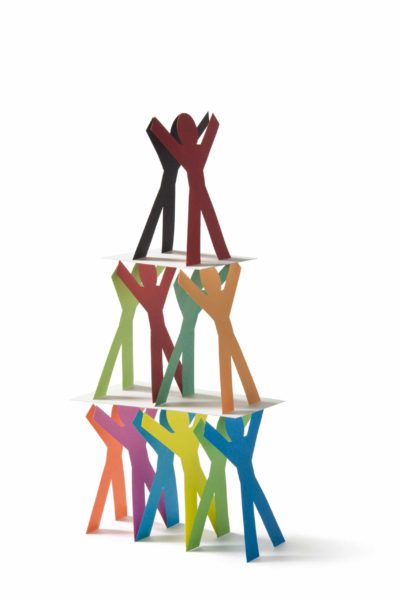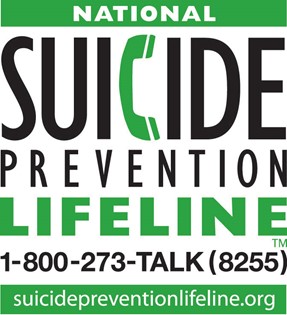
According to the Centers for Disease Control (CDC), “suicide is a leading cause of death in the United States, with 45,979 deaths in 2020.”
Each person who dies by suicide “…leaves behind an average of 6 to 10 ‘survivors’ – spouses, parents, children, relatives, and close friends who are devastated and shocked by the death and who may not be sure how to navigate their grief,” reports an article in Psychology Today.
Suicide loss survivors, in addition to grieving the death of someone they loved, must also deal with complex emotions such as confusion or anger surrounding the way their loved one died.
There’s no “right” way to grieve after suicide loss. But mental health professionals have identified coping strategies that some survivors may find helpful. Additionally, people who’ve experienced this kind of painful loss personally have comforting words for suicide loss survivors.
Depression and other emotions after suicide
While everyone grieves differently, losing a loved one to suicide can cause intense emotions, according to the Mayo Clinic. For example, you might experience shock, feelings of rejection, anger, guilt, despair, or confusion. As time passes, your emotions might change and shift.
Shock. In the beginning, you might think it’s not possible that your loved one’s death by suicide is real. You might feel numb emotionally.

Feelings of rejection. “You might wonder why your relationship or love wasn’t enough to keep that person from dying by suicide,” according to the Mayo Clinic.
Anger. You might have feelings of anger toward the person who died. You might be angry with yourself or others for missing potential signs that your loved one was thinking about suicide.
“After a homicide, survivors can direct their anger at the perpetrator. In a suicide, the victim is the perpetrator, so there is a bewildering clash of emotions,” according to the Harvard Health Newsletter. “… the act may seem like an assault on or rejection of those left behind. So the feelings of anger, rejection, and abandonment that occur after many deaths are especially intense and difficult to sort out after a suicide.”
Guilt. You might have feelings of guilt for your loved one’s death or replay “what-if” scenarios in your head.
That was true for survivor Gayle Brandeis, who lost her mom to suicide.
“I blamed myself for my mom’s suicide for years, wondering whether I could have done or said anything that would have led to a different outcome,” she writes in The New York Times. “It was only when an adult student in a writing course I taught left a folded note left on my desk saying, simply, ‘It was not your fault,’ that I finally started to release my feelings of culpability.”
Despair. During suicide grieving you might feel sadness, loneliness or helplessness, the Mayo Clinic says. “You might have a physical collapse or even consider suicide yourself.”
Confusion. You might look for a reason why your loved one took his or her life or try to make sense of what happened. Unfortunately, some questions will likely remain unanswered.
“We don’t ever get to know why someone took their own life and that’s really hard,” Hurley says. “Even if a note is left, it doesn’t really give us closure.”
The difference between grief and depression
Grief, and the waves of emotion that come with it, can feel all-consuming. Although grief is different from depression, they can look and feel similar, according to the Harvard Health Blog. With both grief and depression, you might cry, have trouble sleeping, lack any appetite, or not feel like doing anything.
One key difference between grieving and depression can be the network of people who gather in support of a bereaved person.
“People suffering from major depression tend to be isolated and feel disconnected from others, and may shun such support and assistance. People who don’t get such support, or who avoid it, may be at greater risk for slipping into clinical depression during the grieving process,” according to the blog.
It makes sense then why several coping strategies used for helping with depression may also be used in the grieving process – especially for suicide loss survivors – and some of these strategies include talking to and accepting help from others.
Coping strategies
When you’re grieving, it can be easy to fall into behaviors and patterns that might not be helpful for you long-term. Mental health professionals suggest making sure you have healthy coping strategies to rely on. The American Psychological Association (APA) offers this advice:
“Accept your emotions.
- Don’t worry about you ‘should’ feel or do.
- Care for yourself.
- Draw on existing support systems.
- Talk to someone.
- Join a group.
- Talk to a professional.”
Accept your emotions. Remember that intense feelings are normal after a person you loved has died by suicide and they can vary throughout the healing process.
Don’t worry about what you “should” feel or do. There’s no timeline for healing or right way to cope. Focus on your needs.
In an article from the American Foundation for Suicide Prevention, survivor Marcia Gelman Resnick says “There is no right or wrong way to grieve.” Her son committed suicide more than 20 years ago. After it happened, she said she learned to survive one day at a time.
“Do whatever feels comfortable for you, and don’t do anything you don’t want to do. You have a ‘pass.’ If you are invited somewhere, and don’t want to go, you can say something like, ‘I’m not up to it, but please keep asking. Eventually I will accept your invitation,’” she says.
Care for yourself. The APA says while you are grieving, try to get enough sleep and eat regular, healthy meals. Physically caring for yourself can help your mood and give you strength to cope.
For Gelman Resnick, it was helpful to re-connect with a part of her everyday routine.
“Before my son died, my daily routine included going to the gym. As emotionally shattered as I was, I continued to go. It wasn’t always easy, but in the end, it helped,” she says. “Figure out what you liked to do before your [loved one] died. Knitting, reading, cooking, cross word puzzles, yoga, reality TV, painting. Everyone has their own thing. It will help you maintain your sanity.”
Draw on existing support systems. Support systems may include your family members, friends or people in your faith community.
While you might have people around you who want to help, some may worry they’ll say the wrong thing, and end up not saying anything at all. Let people you’re close to know you’re open to talking to them when you are ready.
“While it can be tricky to know what to say to a suicide loss survivor, it is much better to reach out than to hold back out of fear of saying the wrong thing,” Brandeis says in The New York Times. “A simple note, a simple gesture, can make a huge difference. ‘It was not your fault’ is something many suicide loss survivors need to hear over and over again, as is ‘You are not alone.’”
Suicide stigma
Further complicating suicide loss is dealing with other people’s reactions to your loved one’s cause of death. The APA notes that there can often be stigma associated with suicide, which unfortunately leads many suicide loss survivors to suffer in silence and feel even further grief and isolation.
“It never ends,” Hurley says. “When I say I had someone very close to me die by suicide, people stare at me like I ruined the party.”
Scary Mommy writer Kimberly Zapata, a two-time suicide survivor, talks about the stigma this way.
“People do not talk about suicide because no one really knows what to say about suicide. The subject is (more or less) taboo,” she writes. “Like addiction, abuse, miscarriages, and abortions, it is an issue we do not speak about or discuss. But the stigma needs to end. There needs to be more sympathy and empathy. More love, compassion, and support. Because every time someone speaks their truth, someone else is given space to speak theirs.”
Talk to someone or join a group. Speaking about your feelings can help, according to the APA. You might consider joining a support group to help process your emotions alongside other people who are going through something similar. It could surprise you how helpful a support group can be.
Ryan Steen lost his brother, Tyler, to suicide. He tells NPR that afterward, he struggled for too long before realizing he could have done things differently.
“I shouldn’t have isolated myself and pushed away friends who wanted to help after Tyler’s death. Friends and support groups are important for talking it out,” he says.
Getting help
Mental health professionals can help you manage your feelings and find healthy ways to cope after losing someone to suicide.
It was worth it for Gelman Resnick to seek professional help. “Get the help you need. After my son died, I found a therapist for my surviving son, as well as a grief counselor for myself,” she says. “My husband and I continued to see our couple’s counselor. I eventually took antidepressant [medications]. There is no shame in getting help.”
When you’re searching for a therapist, look for one who is experienced in working with grief after suicide, advises the Harvard Health Blog. “The therapist can support you in many ways, including these:
- helping you make sense of the death and better understand any psychiatric problems the deceased may have had
- treating you, if you’re experiencing PTSD
- exploring unfinished issues in your relationship with the deceased
- aiding you in coping with divergent reactions among family members
- offering support and understanding as you go through your unique grieving process.”
The Harvard Health Blog continues: “Immediately after the suicide, assistance from a mental health professional may be particularly beneficial if you experience any of the following:
- increased depression (or if you have a history of depression).
- flashbacks, anxiety, or other symptoms of PTSD.
- unwillingness of family or friends to continue talking about the loss.
- suicidal thoughts or plans.
- physical symptoms, such as ongoing sleep problems, significant weight gain or loss, or increasing dependency on tobacco or alcohol.
- feelings of being stuck or unable to move forward (however slowly and painfully) in the grieving process.
- discomfort in discussing troubling aspects of your relationship with the deceased.
- little improvement after several months.”
Different types of professional therapy might be useful for you depending on your circumstances. According to the Mayo Clinic, “You might benefit from individual or family therapy — either to get you through the worst of the crisis or to help you adjust to life after suicide. Short-term medication can be helpful in some cases, too.”
Complicated grief
While incredibly painful, most people find that their grief begins to ease and lessen over time, allowing them to begin to move forward in their lives while continuing to grieve their loss. However, for some people, their feelings persist or get worse.
“Complicated grief is like being in an ongoing, heightened state of mourning that keeps you from healing,” according to the Mayo Clinic. People experiencing complicated grief might continue to feel intense emotions even after time has passed and might also continue to:
- “Have trouble carrying out normal routines
- Isolate from others and withdraw from social activities
- Experience depression, deep sadne ss, guilt or self-blame
- Believe that you did something wrong or could have prevented the death
- Feel life isn’t worth living without your loved one
- Wish you had died along with your loved one.”
Survivors of suicide loss may be at increased risk of developing complicated grief.
“Contact your doctor or a mental health professional if you have intense grief and problems functioning that don’t improve at least one year after the passing of your loved one,” the Mayo Clinic says.
Finding healing
Healing after the suicide of a loved one isn’t a straightforward path. The future might not be the one you’d wanted or envisioned. But in time, and with healthy coping strategies and resources, you can take steps to move forward.
“As survivors of suicide loss, we learn to survive,” Gelman Resnick writes, “and live a fulfilling, although different life than what we had expected.”
Consider reaching out and accepting support from family, friends, fellow survivors, and/or mental health professionals. Remember that you are never alone in your grief. There are many others out here to walk alongside you on your journey and offer you help and care when you need it.
Our articles are for informational purposes only and are reviewed by our Medical Information team, which includes PharmDs, MDs, and PhDs. Do not make any changes to your current medications or dosing without consulting your healthcare provider.
The GeneSight test must be ordered by and used only in consultation with a healthcare provider who can prescribe medications. As with all genetic tests, the GeneSight test results have limitations and do not constitute medical advice. The test results are designed to be just one part of a larger, complete patient assessment, which would include proper diagnosis and consideration of your medical history, other medications you may be taking, your family history, and other factors.
If you are a healthcare provider and interested in learning more about the GeneSight test, please contact us at 855.891.9415. If you are a patient, please talk with your doctor to see if the GeneSight test may be helpful.


 “Accept your emotions.
“Accept your emotions.




